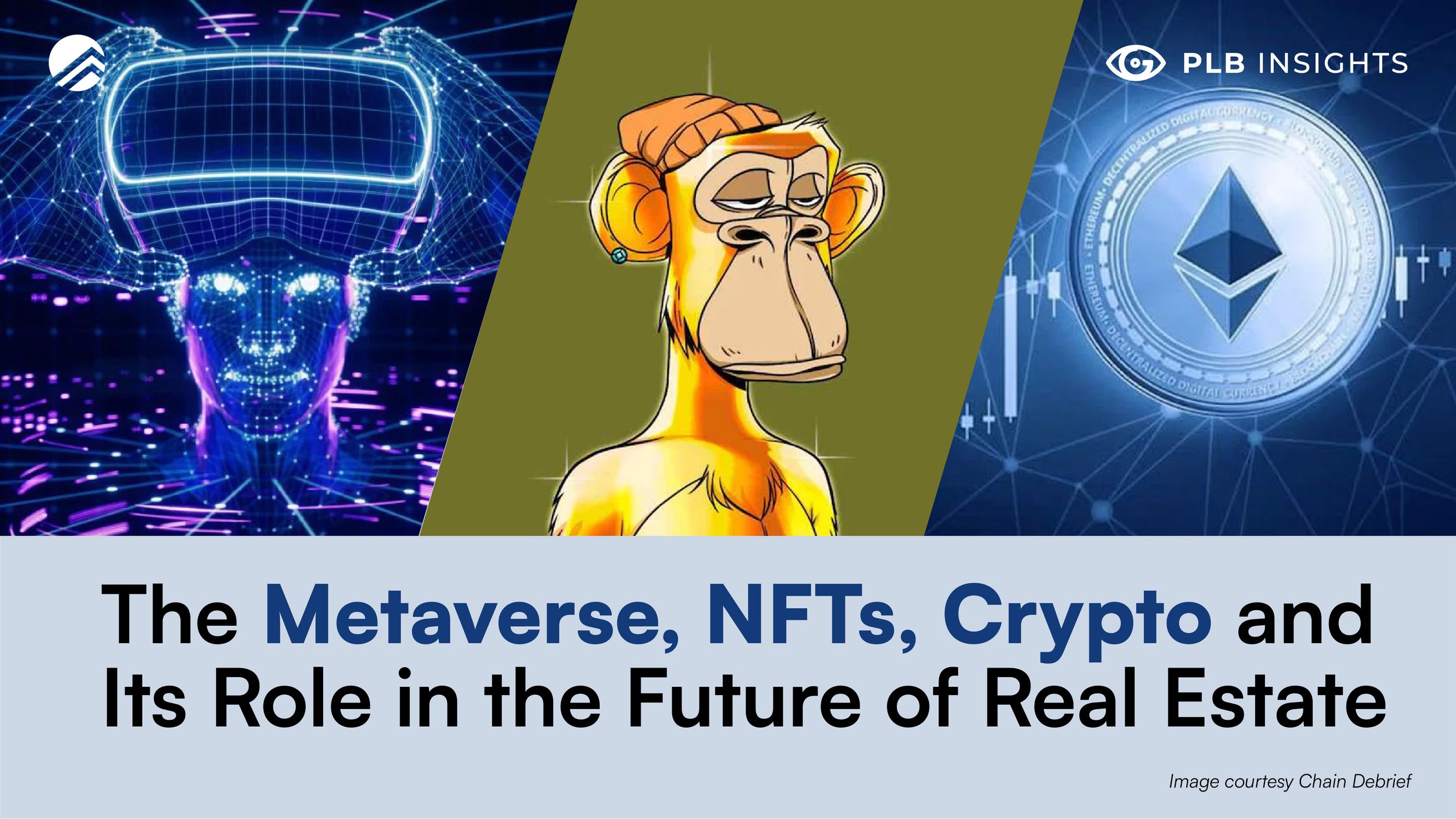
Metaverse? NFTs? Crypto? What are they!
In the popular book turned Hollywood movie – Ready Player One – people sought escape from their dystopian reality through their Metaverse named the OASIS. The OASIS offered an incredulous virtual society where users could exist as digital avatars to explore free from their life’s restrictions.
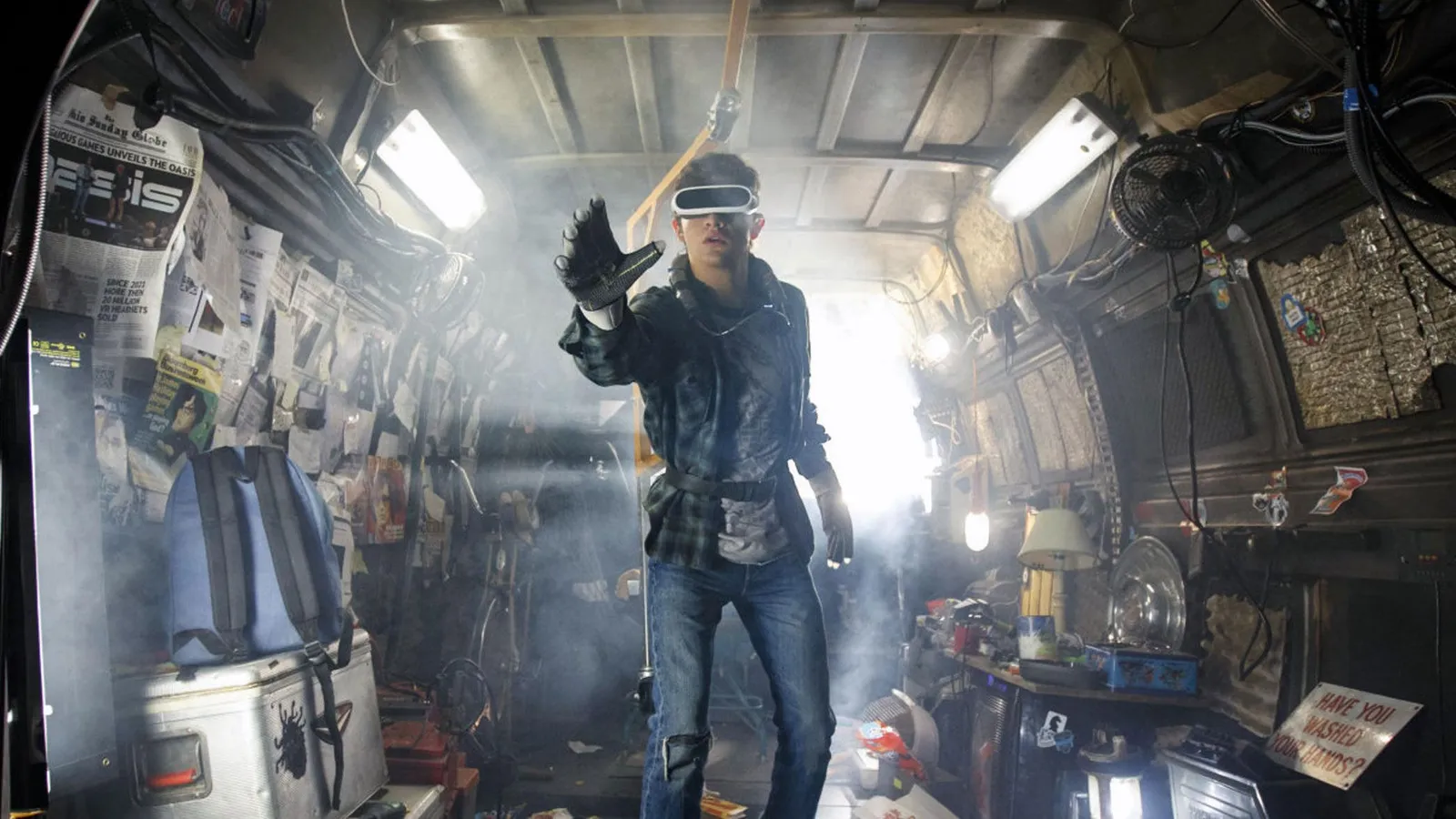
Image courtesy BBC
Since then, the Metaverse has been an increasingly hot topic – even Facebook has rebranded to Meta to reflect their ambitions to grow beyond social media into the Metaverse. However, what exactly is the Metaverse? Not to mention the whole other rabbit hole that is the topic of NFTs and Cryptocurrencies…
Anyhow, how are these technologies going to change the Real Estate industry?
Meta what?! What is the Metaverse?
The Metaverse is the alluded future of the “new” internet. However, it does not refer to a specific form of technology. Instead, it signals a shift in how we interact with technology. The general consensus is that the Metaverse is the idea of having virtual world(s) that run infinitely and concurrently, “parallel” to the physical world.
The technologies the Metaverse encompasses are generally but not limited to…
1. Virtual Reality and Augmented Reality
-
Virtual reality is the technology by which digital stimulus is used to create an immersive illusion of an alternate reality and experience.
Examples: Oculus rift
-
Augmented reality refers to the marriage of physical and virtual spaces on a single platform, enhancing a person’s experience in the physical world through computer-generated assets.
Examples: Pokemon Go
2. Digital economy
-
Through a digital economy, users can buy and sell goods, thus providing an incentive to create goods and services in the Metaverse.
3. Interoperable
-
Interoperability is the idea of transferring items from one platform to another.
-
Currently, most platforms have avatars and inventories locked to a single platform. However, the idealistic version of the Metaverse would allow for such items to be copied over from one social network to another. This has yet to be achieved.
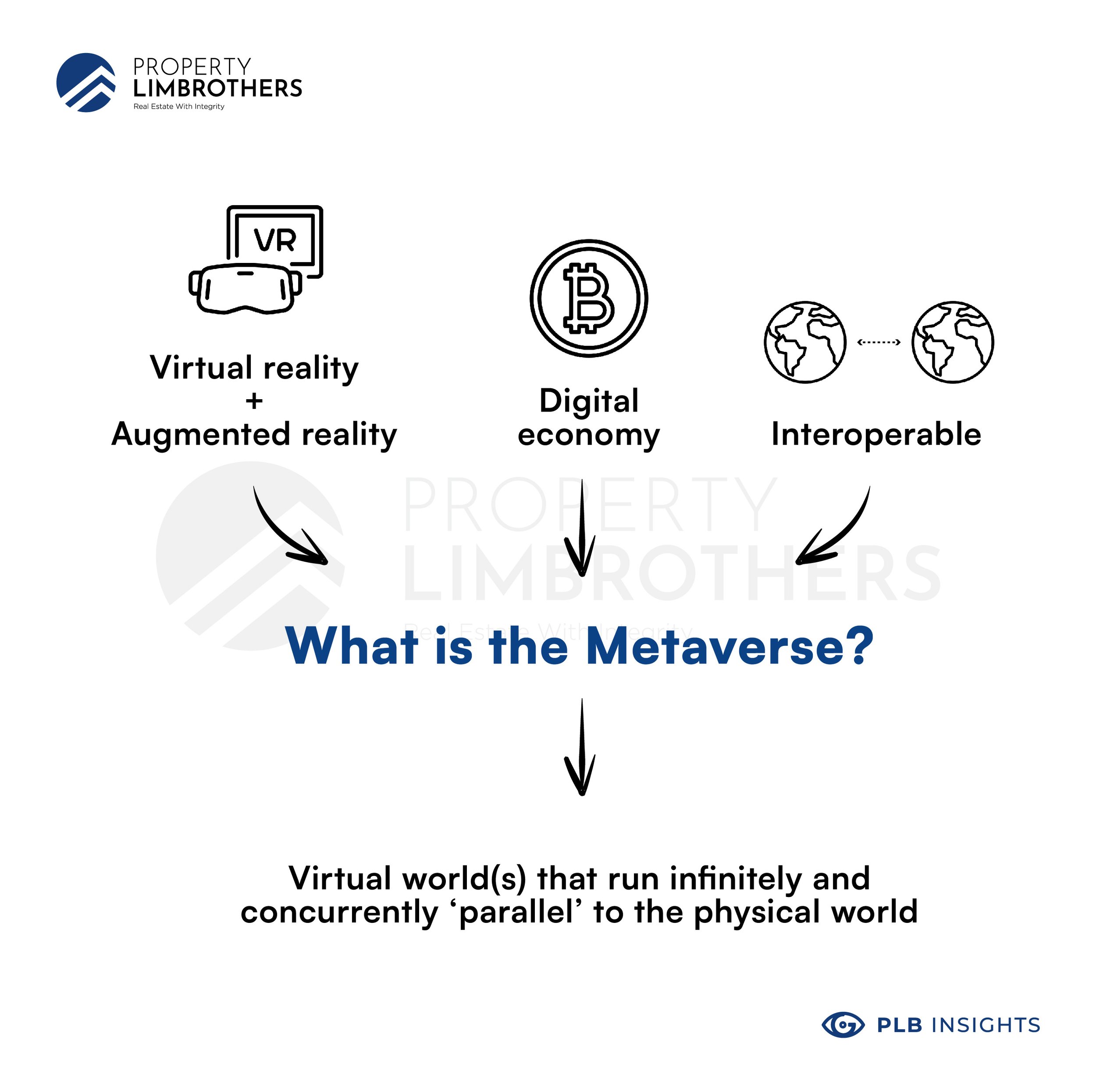
But wait! You might be thinking, doesn’t all of this already exist?
It is true that some video games already do what the Metaverse promises. Popular games that have existed for ages, such as World of Warcraft or maybe you might be more familiar with Minecraft; all carry elements of the Metaverse.
In theory, these games do offer users the ability to socialise, trade and purchase items using in-game economy, but it must be noted that they do not encompass the entire scope of what the community wants the Metaverse to achieve.
Interest in the concept of the Metaverse has been brought about by the boom in demand for ownership over digital assets, with Non-Fungible Tokens (NFTs) and Cryptocurrencies making news headlines, vice versa.
What are NFTs and Cryptocurrencies?
Before we jump into the concept of NFTs and Cryptocurrencies, we first have to understand the fundamental technology that they are built on – Blockchain.
In layman terms, Blockchain refers to the technology of storing information in blocks. A block is filled to its maximum storage capacity, and it is then closed and linked to the previously filled block. Think of it as blocks of data connected by a string. Hence, Blockchain!
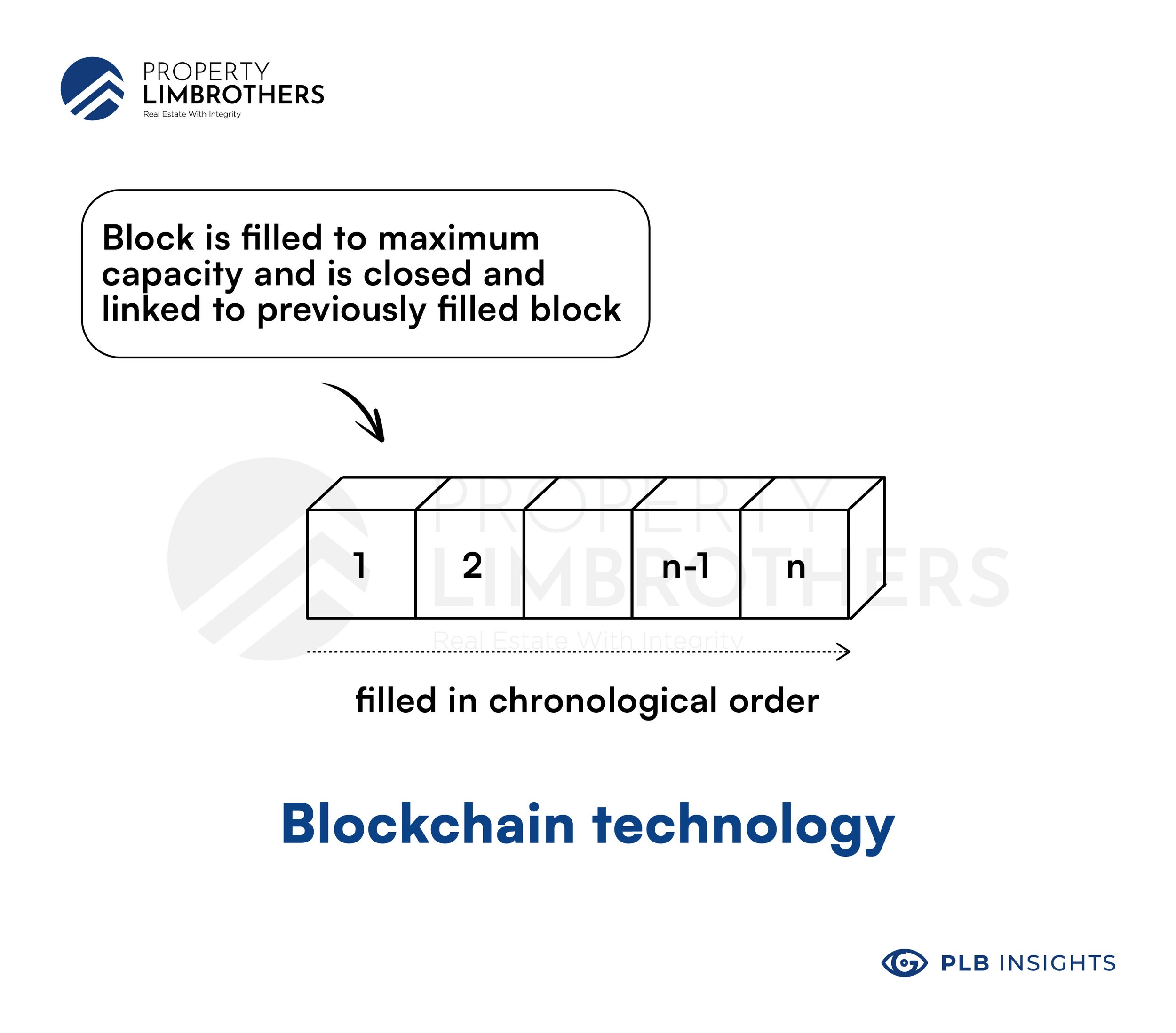
Due to the nature of how Blockchain collects and stores data, an irreversible timeline of data is created. When implemented in a decentralised nature (control and decision-making are distributed as opposed to being held by a single entity), the data stored is immutable – data captured is irreversible.
So how does Blockchain give rise to NFTs and Cryptocurrencies?
NFTs are digital tokens that can represent ownership of unique items. These cryptographic assets are stored on a blockchain with a unique identification code and metadata. Thus providing a unique, unforgeable digital signature for owners to prove ownership.
The phrase “Non-fungible” refers to the characteristic of being distinctive without alternatives. In other words, it is a unique asset that cannot be replaced by something else.
To better illustrate the concept of fungibility…
The US dollar is Fungible as every US dollar is always equivalent to any another other dollar. Whereas in the exchange of NFTs such as one-of-a-kind artwork do not have equivalent value and cannot be traded for other items equivalently as they have unique attributes. Even if we were to trade an artwork for another of similar monetary value, the trade is still not a zero-sum equation as each artwork have unique properties.
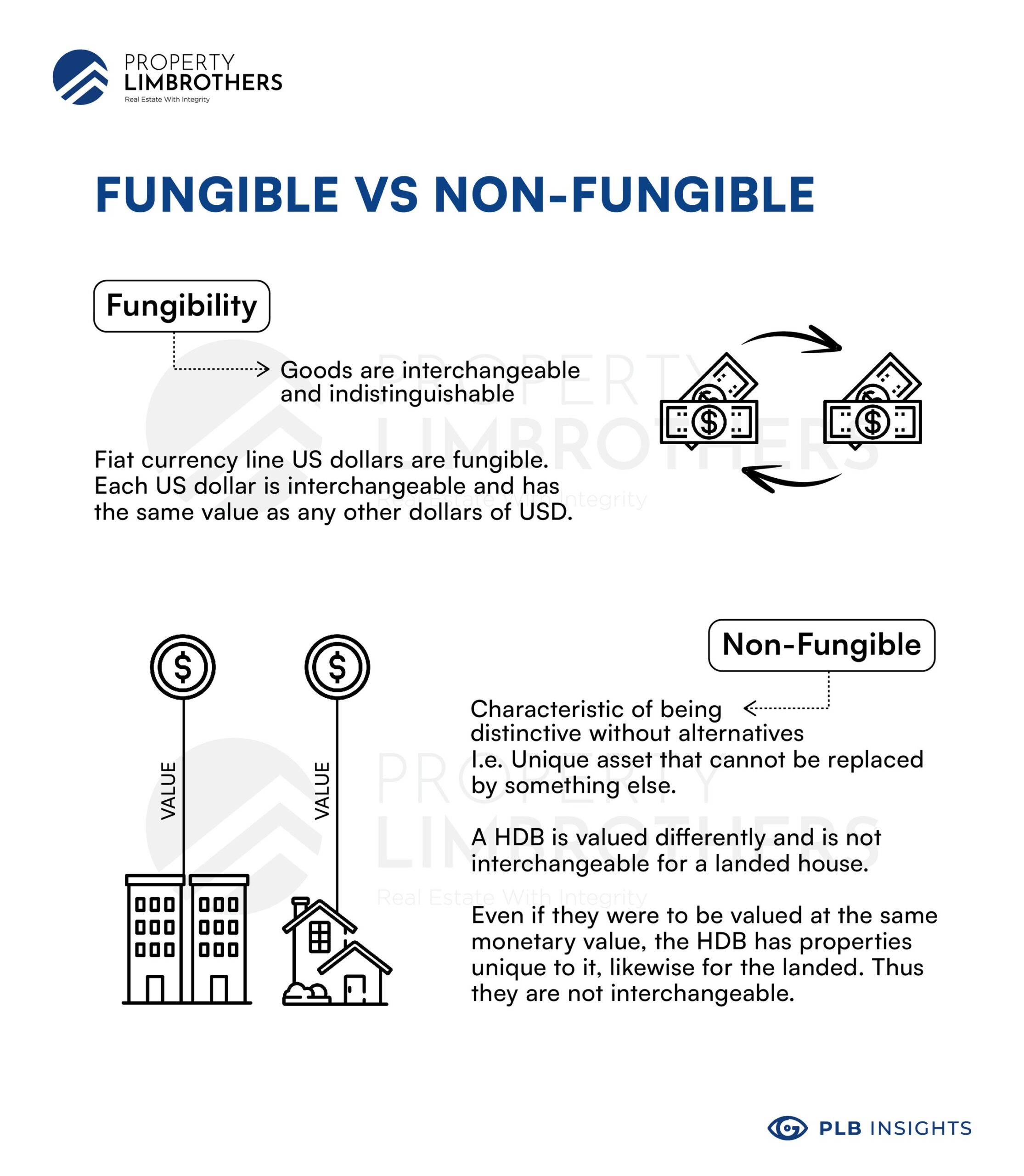
Cryptocurrency is an umbrella term for decentralised digital currency secured by cryptography.
Unlike Fiat currency which is the money that we are more familiar with – U.S Dollar or the Euro, just to name a few – Cryptocurrencies are not managed by a single entity (hence the term decentralised). Instead, cryptocurrencies rely on a disparate network of computers of the users of the cryptocurrency.
Since NFTs and Cryptocurrencies exist on blockchain technology, they are useful as a ledger for transactions as blockchain technology makes the data immutable.
They can also double up as “Smart contracts”, which can help to facilitate, verify or negotiate contract agreements.
Smart contracts are like on and off switches that only operate under specific conditions that users have met. When conditions are met, the terms of agreement are automatically carried out.
But how is the Metaverse, NFTs and Cryptocurrencies changing the Real Estate Market?
NFTs and Cryptocurrencies are changing the way we transact physical Real Estate.
The increasing number of audiences becoming more knowledgeable about NFTs translates into a growing interest in using NFTs coupled with physical real estate.
Granted, naysayers argue that using NFTs to represent ownership is just a social construct created by capitalistic needs. However, likewise can be said that homeownership was a social consensus, to begin with.
However, we think that NFTs have advantages that solve the issues faced by traditional property transactions.
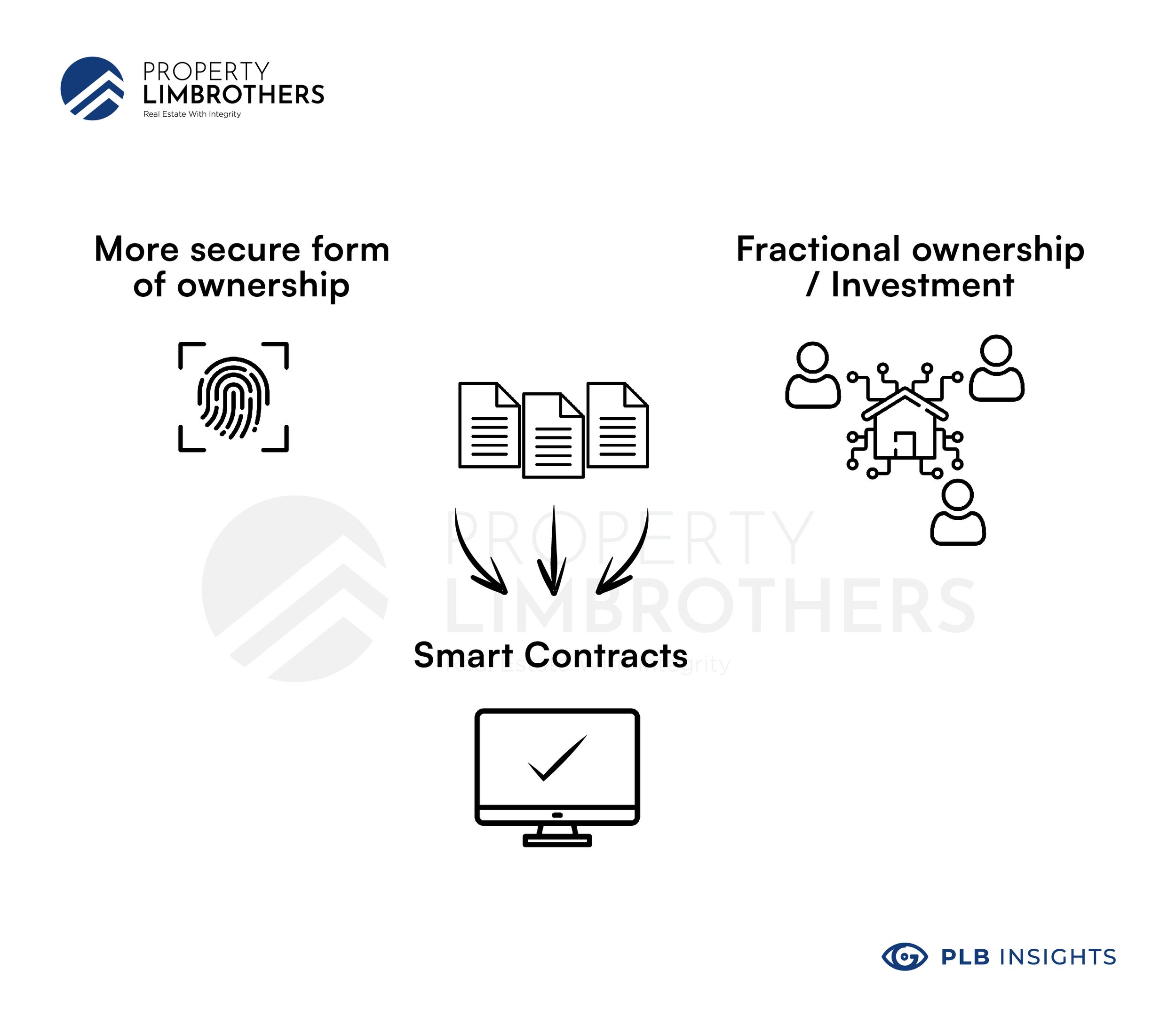
#1 More Secure form of Ownership
Transactions of NFTs can act as a digital cryptographic signature which is much more secure as opposed to relying on the trust of a pen and paper signing that is susceptible to illegal activities and forgery.
#2 Consolidate and streamline property ownership in a single transaction – making real estate tradable in real-time
Transacting properties through NFTs would also be consolidated and streamlined into a single transaction through the help of smart contracts to eliminate intermediaries.
Smart contracts could potentially replace paperwork such as “option to purchase” or even take over the conveyancing process in a single, smart contract.
In fact, this was evident in the World’s First Real Estate NFT with Ownership transfer. The whole process of selling the property was condensed in a measly 22 minutes to transfer ownership which is a far cry from the 3-6 months or even longer it typically takes to transfer ownership of physical properties.
#3 Fractional ownership of physical real estate through tokenisation
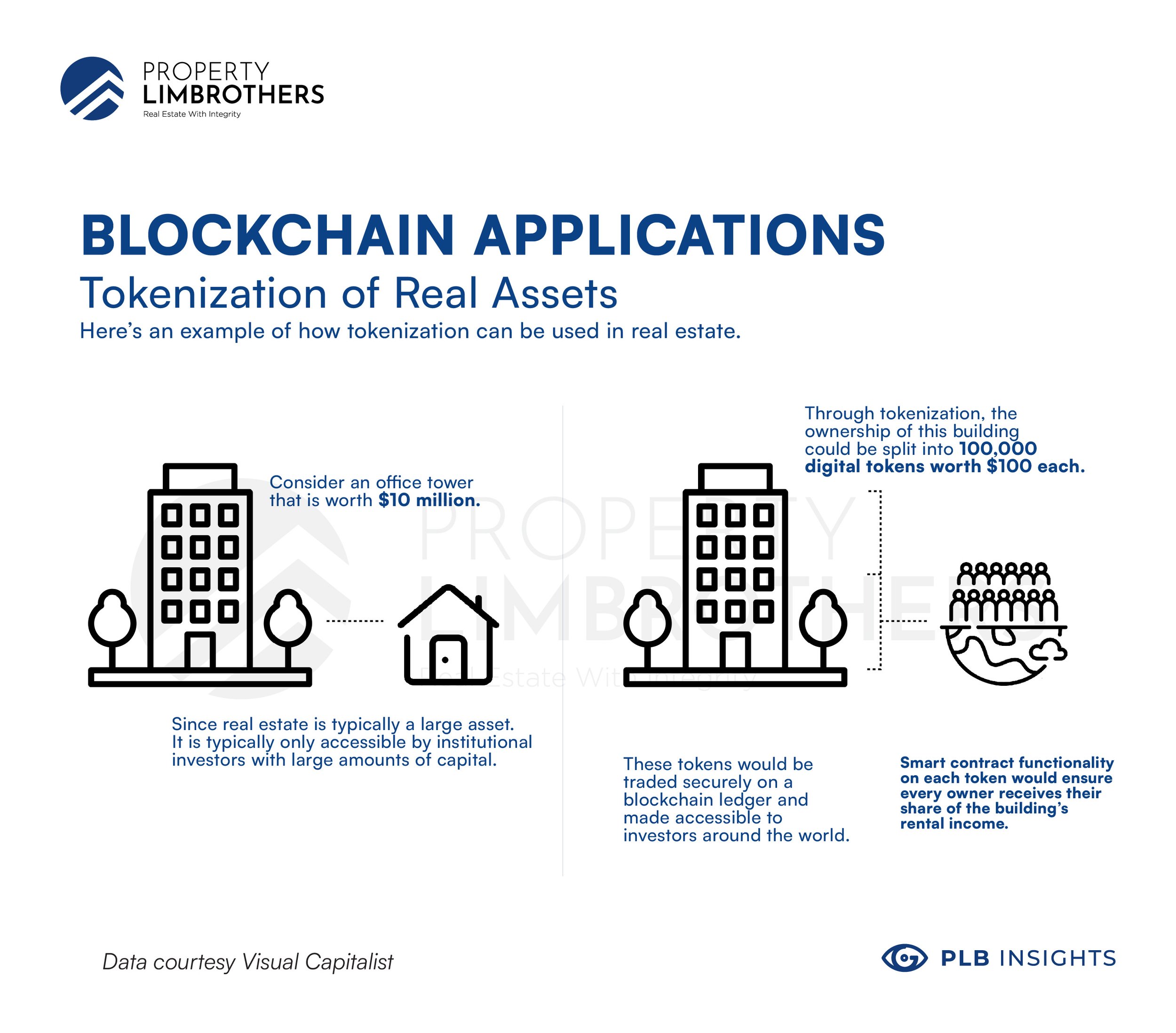
The blockchain technology that NFTs are based on also allows for the creation of fractional tokens, giving owners the opportunity to split ownership. What this means for potential real estate investors in the future is the ability to own real estate without buying the whole thing. Lowering the barrier to entry of physical real estate investments.
Although divided investment in physical real estate is available in the form of traditional REITs, REITs is still quite a macro investment into real estate as buying REITs is akin to investing in the company that owns a portfolio of properties.
Fractional ownership of Real Estate NFTs opens a new investment opportunity of partial ownership of a singular property, giving individual investors the ability to have a more customisable portfolio.
This form of fractional ownerships lowers the barrier to entry to invest in real estate as one only needs a relatively small amount of capital, as already seen in South Korea, where Elysia has launched a small-scale blockchain-based real estate investment service
These 3 advantages altogether could trailblaze a new real estate era, encouraging more investors to transact real estate as a commodity.
The love child of Metaverse, NFTs and Cryptocurrencies – Digital Real Estate
In conjunction with NFTs and Cryptocurrencies, Metaverse has given rise to an entirely new game – Digital Real Estate.
Facebook, or rather, Meta, envisions that the Metaverse will include virtual homes; Microsoft thinks that it could involve virtual meeting rooms to facilitate the onboarding of new hires or communication amongst colleagues.
Regardless of which idea you’re rooting for, this shift in technology is giving rise to the notion of Digital Real Estate – a digital space where digital interactions and experiences can take place.
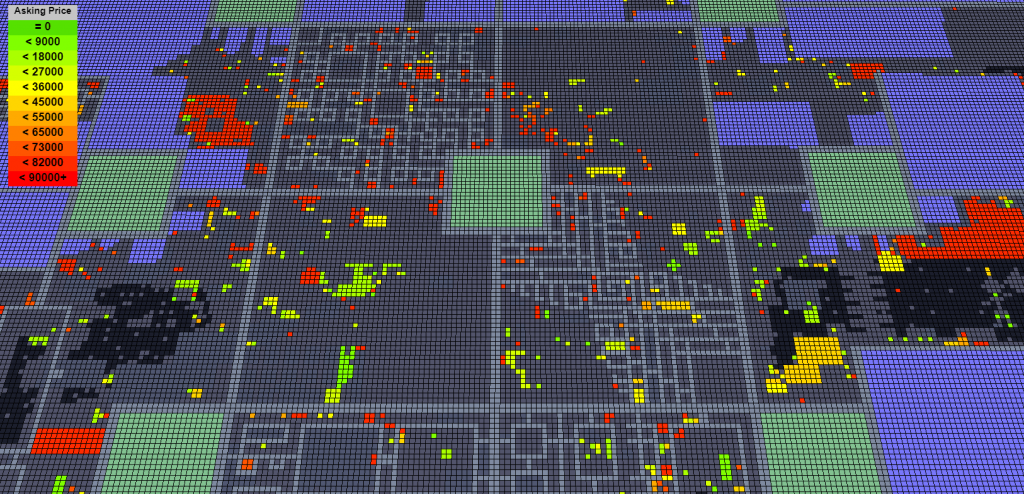
Image courtesy Decentral.games
Paired with the ideology of NFTs and Cryptocurrency, digital real estate can become as elusive and lucrative as a tradable commodity. What this means is that digital real estate could potentially be the next gold mine waiting to be unearthed!
Frankly, the aforementioned is already somewhat of a reality. In the infant metaverses, people are using real money through cryptocurrencies to buy, sell and rent real estate in the form of NFTs to signal ownership (think of NFTs acting as a land deed here).
The Ethereum blockchain that host Decentraland (one of the metaverses available right now) settled $2.5 trillion worth of transactions in the second quarter of 2021 alone! To illustrate how significant this figure is, that is equivalent to the nett worth of transactions VISA handled!
But why would anyone pay for digital and fictitious real estate?
What are you actually paying for when you’re purchasing digital real estate?
As Lastrum puts it in an interview with Cheddar, “When you own the land, that’s an actual NFT, and that give you rights to build whatever you want on your land or provide access or denial to anybody on your land.”
The appeal of digital land is that the user does not need to go through heaps and bounds of real estate laws or is not bound by the laws of physics when building up their area. One is only bound by their imagination on what they can build on their land.
Some of the use cases we have seen are owners who have built businesses that offer goods and services, or a place to store their NFTs that could be artworks they have purchased. And big brands are already doing so.
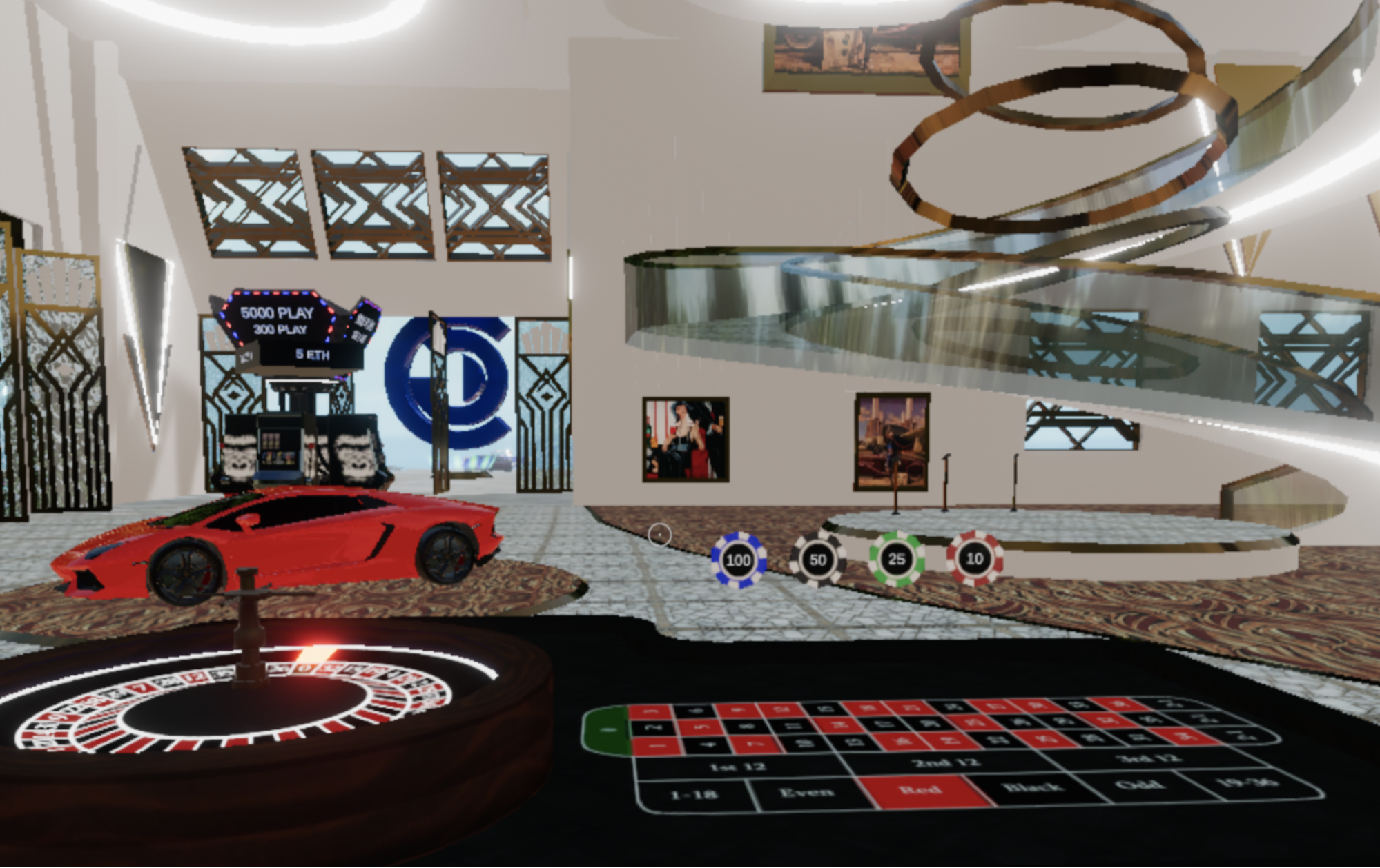
Image courtesy Decentral.games
Samsung launched 837X virtual world in Decentraland in conjunction with CES 2022 promotions; Atari is partnered with Decentraland to create a metaverse Casino and, more interestingly, Republic Realm, a digital real estate investment fund, purchased a parcel of metaverse land.

Image courtesy new.bitcoin.com
Decentraland’s daily active user average was only at 1,500 in Q1 2021, which grew to a whopping 300,000 by Q4 2021. And let’s not forget that this is just one of the many platforms that are attracting the attraction of big tech companies who they themselves are joining the spartan race of building a metaverse of their own.
As long as there is a demand for the use of this world as a platform for the creation and transaction of NFTs, Digital Real Estate is here to stay, hold its value and appreciate.
So what now and what next?
As NFTs help to facilitate real estate to be a easily accessible and tradable commodity in real time, it will only be a matter of time where individual houses can be traded like stocks on the market in the form of whole or partial ownership.
As investors looking to diversify their portfolio, purchasing digital land on these Metaverse platforms could be a suitable way to do so!
However, with all investment, due diligence is required especially with investments in the areas of NFTs, Cryptocurrency and the Metaverse due to its highly volatile nature as much of its development is still in its infancy stage.
It would be wise to measure your risk appetite when considering if such investments are fit in your grandiose retirement plans.
Need more guidance on planning your real estate investment plans? Feel free to reach out to our team. Click here to contact us now!
Interested in find out if we Are Headed for a Bullish or Bearish Real Estate Market in 2022? We delve into that in our insights article here!
Curious to find out why Homebuyers Shift Attention From the Central to City Fringe Homes? We delve into that in our insights article here!
To check out our Investors Series Season 1 click here!
And for Investors Series Season 2 click here!








